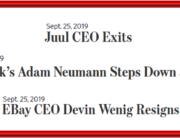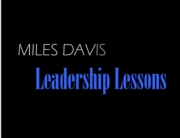As business owners we are driven to achieve success. It is who we are. And it is why we are entrepreneurs; working harder than most with higher risk so we can experience that success.
Failure is anathema to our very being. But, by taking the precaution of contemplating failure we increase our chances for success. Harvard Business School Novartis Professor of Leadership and Management Amy Edmonson studies why businesses fail and suggests four questions you need to ask before starting a new venture in order to avoid failure.
Here are the questions (slightly adapted from Professor Edmonson’s original):
1. What is the likely outcome of this action?
Do you have a clear vision of what will result from this project? Does this envisioned outcome match the goals and objectives included in the plan for the new venture?
The outcome does not have to be defined solely in terms of financial gain. For example, outcome could be defined in terms of increased brand recognition. Or the project may be a small-scale trial with the expected outcome being additional experience and knowledge needed to launch a larger initiative.
2. Is the cost and scope relatively small?
Again, while you need to consider expenses, it is important to think beyond the cost in dollars. Are the needed skill sets readily available? Since time is always scarce, do you have time available sufficient to devote to this new venture? Is your staff composition appropriate and does their work load allow for the additional effort required?
One factor often not considered in advance is stress: How much stress do you currently feel and will this project send your stress level perilously close to the breaking point?
And then there are the yet unknown consequences and associated costs which I address below.
3. Is the upside of this opportunity significant?
Is the effort and resources required to succeed worth the end results? Or can they be directed elsewhere for an even higher ROI?
4. Have you articulated and included in your plan scheduled tests of key assumptions?
What is the current situation and what are you assuming is going to happen? It is critical to delineate, prior to implementation, how and when assumptions (including progress) will be measured. Scheduling measurement of assumptions upfront makes it more likely to be done. This provides opportunities to adjust or even abandon your plan should the project not be meeting expectations.
One assumption to always include is Newton’s Third Law of Motion: “Every action has an equal and opposite reaction.” Even though originally postulated to define a physical state, this also applies to business. I offer a client as an example. Prior to engaging me, this client had implemented a plan to introduce a new service. In reaction, one of his largest customers informed my client that they would no longer do business with him because they considered my client’s new service to be in direct competition with them. This is one of the unknown consequences referred to above.
How to answer these questions.
Knowing the questions to ask is only half the battle. Your answers need to anticipate reality as accurately as possible. That makes the difference between success and failure. But this is challenging especially if you are evaluating the new venture while managing ongoing operations. Each interruption is another distraction and, if you are able to separate yourself, concentration is difficult as your mind wanders to what is waiting when you return.
Being only one individual with one set of experiences is also a challenge. After all, the answers to these questions require a broad perspective to anticipate most, if not all, the alternative scenarios. Thus, it is important to solicit feedback so the answers are as accurate as possible.
Internal staff are an obvious source for feedback. After all, outside of yourself, staff are the most familiar with the resources immediately available. I encourage owners to rely on staff. However, there is a caveat when analyzing new ventures: Your staff work alongside you and thus come to the table with operational and industry perspectives very similar to your own.
Soliciting outside advice broadens this perspective. A carefully chosen Board of Advisors is an excellent resource to broaden your perspective and a reality check when embarking on a new venture. This can be in the form of a formal board (which I encourage all businesses of a certain size to consider) or an informal gathering of other owners and professionals whose opinions you trust.
Finally, the right business coach or advisor can provide the needed outside perspective plus assist in planning and monitoring the project as it moves forward.
Conclusion
Before you jump into that next venture, take the time to ask and answer the questions to properly evaluate the opportunity. Not only will you avoid failure. You will be maximizing your success.













































































